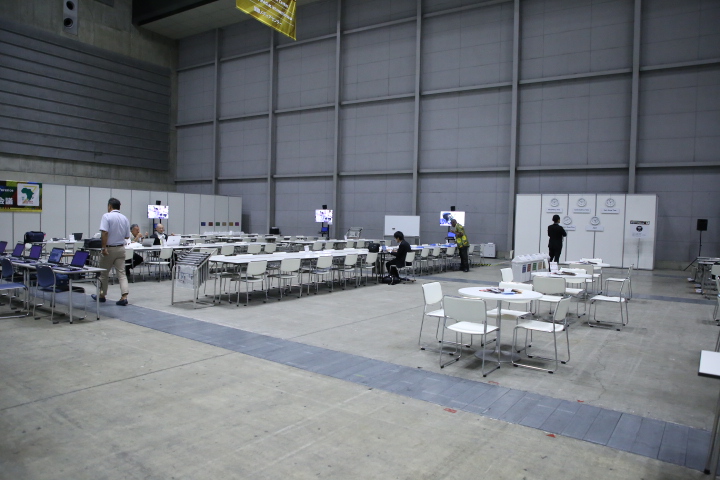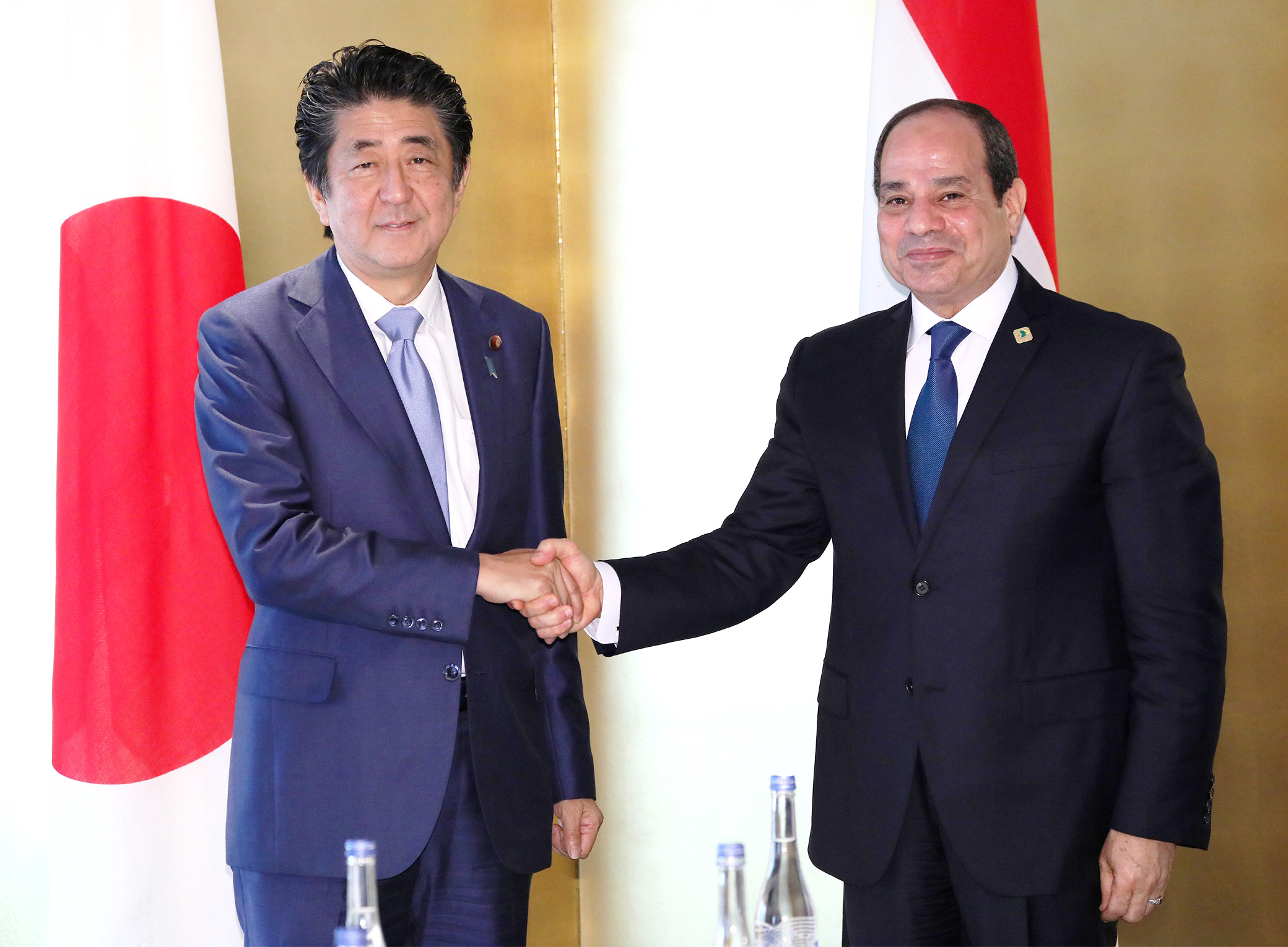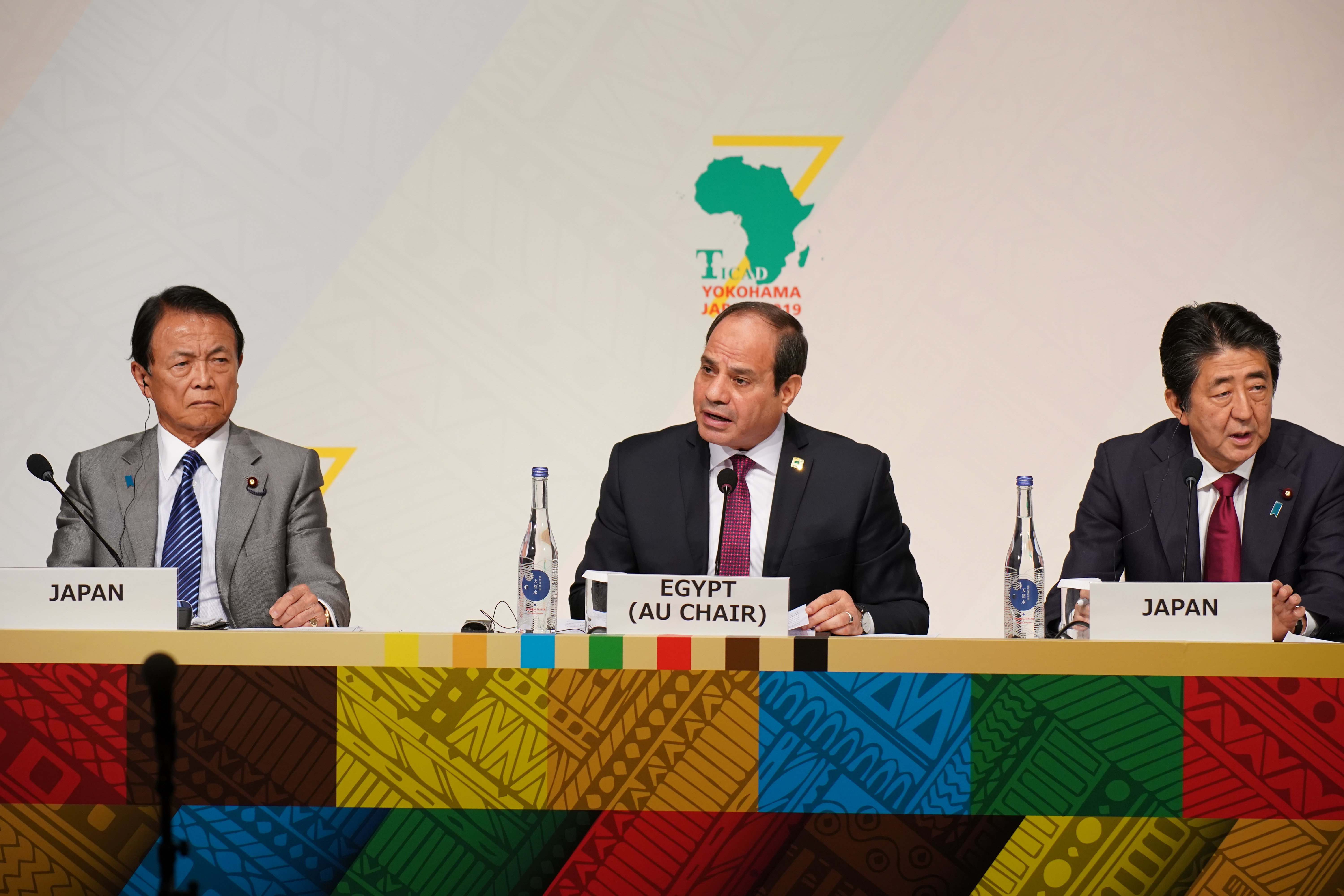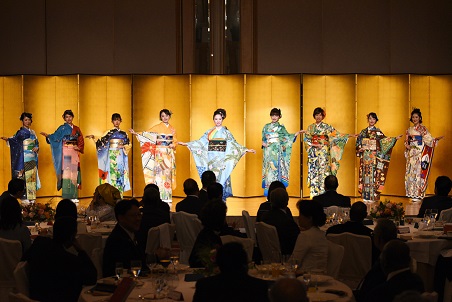Yokohama - 10 September 2019: "Give a man a fish, and you feed him for a day. Teach a man to fish, and you feed him for a lifetime.” This ancient Chinese saying could aptly explain how the Tokyo International Conference on African Development (TICAD), a multi-lateral international conference held in Japan, helps develop Africa’s economy.
Happening every three years, the summit seeks to better display Africa’s abundant resources to global investors, provide financial facilities and help the continent find African solutions to African problems.
Japan has re-considered its decades-long vision to support Africa, re-framed itself as a partner of Africa rather than a donor and decided to leave the steering wheel for the continent to maintain ownership of its development. Over the past three years, Japanese private investment into Africa reached $20 billion.
TICAD has a unique partnership with Africa, where major international institutions play a role including the World Bank, UNDP and the African Union, Egypt’s Ambassador to African Union and Ethiopia Osama Abdel Khalek told Business Today Egypt in an interview on the sidelines of the TICAD7. “TICAD has a special tool to approach Africa, which makes it difficult to compare [with other development models], particularly given Japan’s great technological advancement,” he added.
Ambassador Abdel Khalek explained that the conference is based on a specific concept when approaching Africa, which is: “In order for others to help you, you need to be capable of helping yourself.” The reason there is a great deal of foreign competitors on influence in Africa, is because the continent has diverse opportunities of economic growth and a large youth population, he said.
TICAD7 in Yokohama
The seventh TICAD conference was held from August 28 to August 30 at the Pacifico Yokohama Conference Center, one of the largest convention complexes in Japan.
Business Today Egypt visited the premises.
The exterior design of the Pacifico Yokohama brings to mind ocean waves, wind, and sunlight. The venue has several halls, where around 170 sessions could take place at once.

Journalists' working place at Pacifico Yokohama Conference Center that hosts the TICAD7 summit in Japan - Photo take by Nourhan Magdi/Egypt Today
Yokohama city is known for its expertise in waste management; it invited officials from Africa for training in Japan. At the Pacifico Yokohama, TICAD maintained sustainable policies like using disposable cups besides water dispensers at venue.
Initiated by Japan, TICAD stands for the “Tokyo International Conference on African Development,” and convenes every three years alternately in Japan or an African country.
The summit-level international conference is co-organized by the Government of Japan, the United Nations (UN), the World Bank (WB), the United Nations Development Program (UNDP) and the African Union Commission (AUC). Its stakeholders include all African countries and many development partners, including international and regional organizations, partner countries, the private sector, and civil society organizations.
The TICAD plays a role to promote connectivity and enhance the capacity of African’s private sector via technical support, experience sharing on SMEs, and promotion of agro-industry expansion, learning from Japan’s Kaize experience to leapfrog technological development for Africa.
Outcomes & future goals
During the opening ceremony of the TICAD7 in Yokohama, Japanese Prime Minister Shinzo Abe described the summit as “a partnership that lifts to greater heights the double E’s of entrepreneurship and enterprise,” along with the double I’s of “investment” and “innovation.”
In his speech, Abe highlighted the prominent outcomes of previous TICADs, like initiatives supporting African youth as solid bridges linking Japanese companies with Africa. This includes the “ABE initiative,” announcing the new 3.0 health coverage, educational reforms, and even police system support that were part of Japanese achievement in Africa.

President Abdel Fatah al-Sisi and Japanese Prime Minister Shinzo Abe after a bilateral meeting during TICAD7 in Yokohama - photo from TICAD7 flickr
“Now, Japan has a thing or two it wants to do with Africa. One is to safeguard the Indo-Pacific, which connects Africa and Japan, with great care as ‘international public good’ permeated by the rule of law. Another is to make a meaningful contribution, as a people that cherishes water and the sea, to your ‘blue economy’ initiative,” said PM Abe, outlining the new agenda of development Japan intends for Africa. The blue economy comes in reference to making use of coastal areas and territorial waters under African jurisdiction for optimal economic development. “We will take every step to help Japanese companies to make inroads in Africa,” Abe also said. Co-chairing the session along with Abe was President Abdel Fatah al-Sisi, in his capacity as the chair of the African Union, where he ensured that amid various challenges facing the continent, these require strengthening international relations to counter them.
PPP: Japan’s pitch to develop Africa
Aligned with the TICAD7 theme reinforcing the private sector’s role in Africa development, President Sisi called on African and international organizations and multinational financing institutions to play a role in funding development projects in Africa, providing financial guarantees for the capacity-building of the continent with a view to beef up trade exchange and investments. “This era features modernization and interest in cooperating with private sector in Africa to invest in infrastructure and energy projects – a necessity to reap the fruits of African area. I am looking forward to highlighting how the government has bolstered cooperation with private sec-
tor,” Sisi added.
During a plenary session at the TICAD7 dedicated to discuss importance of boosting private- public partnership, Satoshi Ozawa, the chair of Japan Business Council for Africa, spoke about the challenges facing Japanese companies investing FDI in Africa, and urged governments in Africa to better support the business environment to attract further investments.

President Abdel Fatah al-Sisi and Japanese Prime Minister Shinzo Abe during a press conference by the end of TICAD7 in Yokohama - photo from TICAD7 flickr
He highlighted the launch of the Japan Business Council for Africa to support private-public partnership as of June. Towards TICAD 8, it will be a standing body, with full working groups already discussing concrete terms to help Japanese companies in Africa.
Japan’s pitch to develop Africa builds on this concept of engaging the private sector in the continent’s development process, and one of the first steps is to discuss what Africa needs from Japan.
“What Africa needs from Japan is technology, and their know-how in managing their projects as Japan is known for its great technical advancement,” Chairman of the Federation of Egyptian Chambers of Commerce Mohamed el-Araby tells Business Today Egypt.
Araby, who also heads the Japanese Egyptian Businessmen Council, said that although there are about 106 Japanese companies in Egypt across different fields, the investment size is still below what they look for from a country like Japan, “That’s why we always encourage Japan to increase its investments.” He further explained that Africa needs to improve it business environment, “Since everyone is looking at Africa as a thrive investment market, and are ready to tap in different fields there.”
Executive Director of the World Food Programme David Beasley stressed during one of the TICAD7 sessions that “without the engagement of private sector in Africa, we cannot avoid hunger. Africa can feed the whole world due to its rich resources that still need development and to attract investment.”
From Aid to Trade
“It is not about money first, money cannot make development if you do not have a vision with a proper plan for yourself and clear objectives for what you want,” Assistant secretary general of United Nations Mohamed Beavogui tells Business Today Egypt.
Beavogui added, “A fundamental question would be what does Africans want to do…So the only way for it to work is if Africa is conscious of that because nobody is going to develop Africa for Africa…the partnership or assistance, be it from the public or private sector, can be channeled to properly respond to Africa’s needs.”
He added that Africa’s Agenda 2063 is all about Africa ownership, and everybody needs to help the continent move towards the achievement of this agenda.
Takashi Tsunemi, Managing Director of Japan External Trade Organization (JETRO) Cairo Office, spoke to Business Today Egypt about challenges facing Japanese investments in the country due to high import duties, adding that JERTO approached the challenges with the government, especially after custom exemptions on European cars. “We requested some special incentives…we are positively waiting for some good news,” Tsunemi said.
Innovate for Africa
During his opening speech of TICAD7, Prime Minister Abe ensured that innovation is Africa’s route to development. “We are in an era in which the challenges Africa faces will be resolved through S, T, and I -- science, technology, and innovation.”
Although building quality infrastructure in the continent is a pre-requisite for achieving a real connection across Africa, it is not the only field.
“The new pillar in developing solutions for the continent is harnessing technology, which is becoming a new variable that affects the whole world through artificial intelligence, database linkage,” said ambassador Abdel Khaleq. He added that Egypt has taken further steps towards applying this pillar through digital transformation.
World Bank Vice President Hafez Ghanem explains that Africa needs approximately one mil- lion new job opportunities each month for the youths who enter the labor market.
Ghanem explained that providing such a large number of jobs could only happen if investments are directed to technology.
He further noted that Asia has significant experience in increasing the number of job opportunities during the 20th century, thanks to labor- intensive manufacturing exports.
However, Ghanem rules out that the same experience can be replicated in Africa in the 21st Century, due to the technological advancement of this age. “The continent needs industry, agriculture, and services,” he added.
The World Bank VP stated that all studies conducted by the bank demonstrate how African states that increased the number of job opportunities over the past years are the ones that invested in technology.
Yokohama Declaration
As TICAD7 came to an end, leaders announced the final declaration, named after the host city: the Yokohama Declaration. The final declaration harnessed the power of private sec- tor investments to boost economic and social growth in Africa.
The adopted declaration pledges to promote private sector-led growth in achieving sustain- able development. The Yokohama Declaration spells out the free and open Indo-Pacific initiative that Japan aims to activate. “We were able to set a firm direction for becoming a partner of Africa, which is developing dynamically,” said Abe during the closing ceremony of the TICAD7 summit.

Side of Japanese celebration during the opening of the TICAD7 summit in Yokohama -
The document says it will step up training pro- grams for young African engineers. It vows to strive toward a free, fair and transparent investment environment. That’s something critics say China’s initiatives are lacking.
Prime Minister Abe said, “As we have announced during this conference, Japan will help African nations improve debt management capabilities by sending policy advisors and providing training.”
The Yokohama Declaration also pledges to continue fighting infectious diseases by investing in health initiatives.



Comments
Leave a Comment